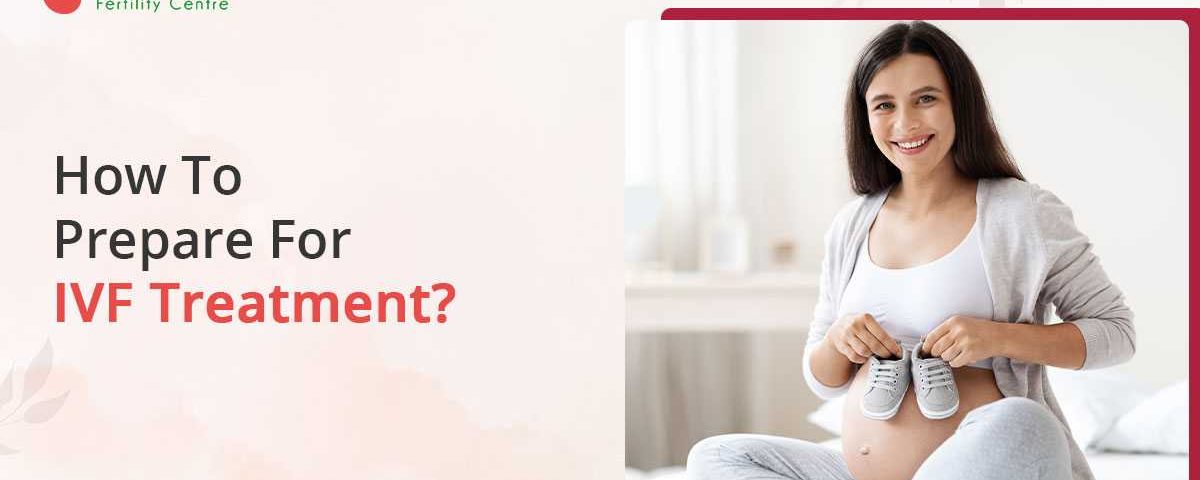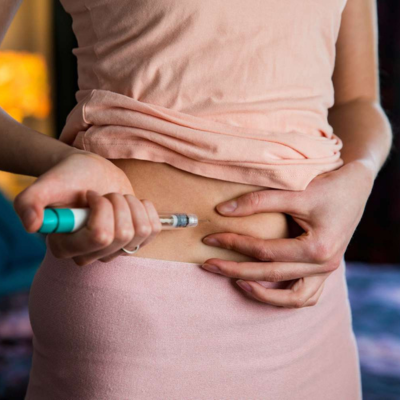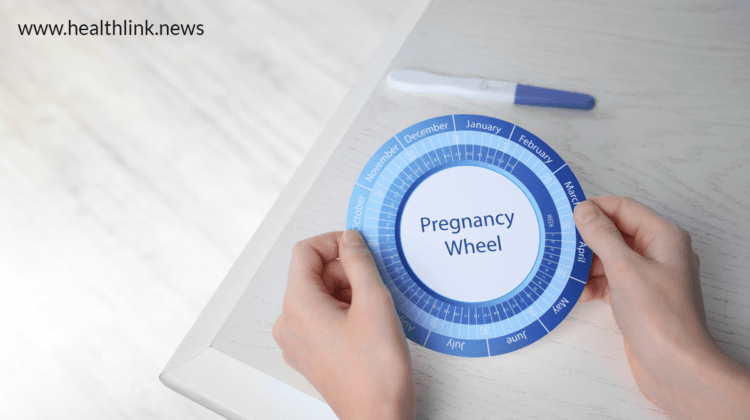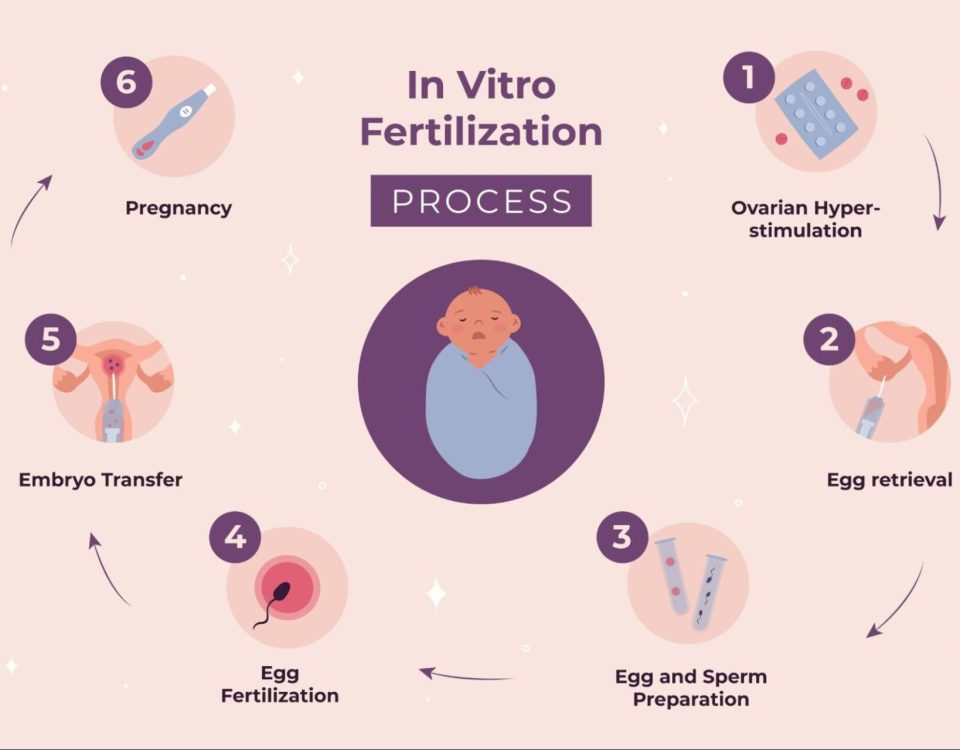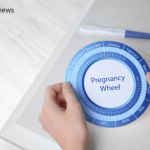
How to Calculate Your Due Date for IVF: A Complete18 Guide for Beginners
April 29, 2025
What Are the Long-Term Side Effects of IVF Injections?
April 29, 2025How to Prepare for IVF: Your Ultimate Guide to Feeling Ready
Starting the journey to in vitro fertilization (IVF) can feel like stepping into the unknown. It’s exciting, nerve-wracking, and full of questions all at once. Whether you’re just beginning to explore fertility treatments or you’ve already scheduled your first appointment, preparation is key to making this process smoother and less overwhelming. This guide is here to walk you through every step—physically, emotionally, and practically—so you can approach IVF with confidence and clarity.
Let’s dive into what you need to know to get ready, from boosting your body’s health to navigating the unexpected twists of this unique path.
Understanding IVF: What You’re Signing Up For
IVF is a process where doctors help create a pregnancy by combining an egg and sperm outside the body, then placing the resulting embryo into the uterus. It’s a big deal—both in terms of science and emotion—and it’s not a one-day event. A single cycle typically takes 3 to 6 weeks, involving hormone shots, egg retrieval, and embryo transfer. Success isn’t guaranteed, but preparation can improve your odds and your peace of mind.
The stats? About one in seven couples in the U.S. face infertility, and over 8 million babies have been born worldwide through IVF since it began in 1978. It’s a proven option, but it’s also personal. Your age, health, and even lifestyle play a role in how it goes. So, let’s break it down and get you prepped.
Getting Your Body Ready: The Physical Prep
Your body is the star of this show, and giving it the best shot starts months before the first injection. Here’s how to set yourself up for success.
Nutrition: Fueling Fertility
What you eat matters more than you might think. A 2023 study from the Journal of Human Reproductive Sciences found that women who followed a Mediterranean-style diet—think lots of veggies, lean proteins, and healthy fats like olive oil—had a 20% higher chance of IVF success compared to those who didn’t.
✔️ Do this: Load up on colorful fruits and veggies (antioxidants are your friends!), whole grains, and omega-3-rich foods like salmon or walnuts.
❌ Skip this: Cut back on processed foods, sugary snacks, and too much caffeine—more than one cup of coffee a day might lower your odds, according to recent research from the American Society for Reproductive Medicine.
Try this simple trick: Keep a food journal for a week. Jot down what you eat and how you feel. It’s an easy way to spot habits you can tweak.
Exercise: Move Smart, Not Hard
Exercise keeps your body strong, but overdoing it can mess with your hormones. A 2024 study in Fertility and Sterility showed that moderate exercise—like 30 minutes of brisk walking or yoga 5 days a week—boosted IVF success rates by 15% compared to a sedentary lifestyle. Too much high-intensity stuff, like marathon training, though? It might throw off your cycle.
✔️ Start here: Try a gentle yoga flow or a daily walk with a podcast. It’s low stress and keeps you moving.
❌ Avoid this: Skip the hardcore boot camps for now—save that energy for your fertility journey.
Supplements: A Little Extra Help
Doctors often recommend a few key supplements to prep your body. Prenatal vitamins with folic acid (at least 400 mcg daily) are a must—they reduce birth defect risks and support egg quality. A 2022 Harvard study also found that women taking CoQ10 (an antioxidant) had better egg quality during IVF, especially if they were over 35.
✔️ Consider these: Prenatal vitamins, CoQ10 (200-600 mg daily), and vitamin D if your levels are low—about 40% of women trying IVF are deficient, per the National Institutes of Health.
❌ Don’t overdo it: Skip random supplements without your doctor’s okay—too much of a good thing can backfire.
Quick Tip: Ask your clinic for a blood test to check your vitamin levels. It’s a small step that can make a big difference.
Emotional Prep: Building Your Mental Strength
IVF isn’t just a physical ride—it’s an emotional one too. The ups and downs can hit hard, so let’s talk about how to stay steady.
Managing Stress: Keep Calm and Carry On
Stress doesn’t cause infertility, but it can make the process tougher. A 2023 study in Psychosomatic Medicine found that women who practiced mindfulness or meditation had lower cortisol (stress hormone) levels and reported feeling more in control during IVF.
✔️ Try this: Spend 10 minutes a day breathing deeply—inhale for 4 seconds, hold for 4, exhale for 4. It’s simple and works anywhere.
✔️ Another idea: Journal your thoughts each night. Getting them on paper can lighten the load.
❌ Avoid this: Don’t bottle it up—talk to a friend or therapist if you’re feeling overwhelmed.
Building a Support Squad
You don’t have to go it alone. A 2024 survey by Resolve: The National Infertility Association found that 70% of IVF patients felt less isolated when they had a solid support network.
✔️ Reach out: Tell a close friend or family member what you’re going through—they can’t fix it, but they can listen.
✔️ Join in: Look for an online IVF support group. Hearing from others who get it can feel like a lifeline.
❌ Skip this: Don’t lean on people who dismiss your feelings—surround yourself with positivity.
Interactive Moment:How do you unwind? Pick your favorite stress-buster below and try it this week:
- A hot bath with candles
- A funny movie night
- A walk in nature
Practical Prep: The Nuts and Bolts
IVF comes with logistics—appointments, costs, and decisions. Here’s how to tackle the practical side like a pro.
Finding the Right Clinic
Not all clinics are the same. Success rates vary, and so does the vibe. The Society for Assisted Reproductive Technology (SART) tracks clinic outcomes—check their site for stats near you. A 2025 report showed top clinics had success rates of 40-50% for women under 35, but location and staff matter too.
✔️ Ask this: “What’s your success rate for someone my age?” and “How many cycles do you do yearly?”
✔️ Visit: Tour the clinic—does it feel welcoming? Trust your gut.
❌ Don’t rush: Avoid picking a place just because it’s close—quality counts.
Money Matters: Budgeting for IVF
IVF isn’t cheap—costs range from $12,000 to $25,000 per cycle, per a 2025 Federal Register update. Insurance might cover some, but not all.
Here’s a quick breakdown:
| Expense | Average Cost | Tips to Save |
|---|---|---|
| Medications | $3,000-$5,000 | Ask about generics or discounts |
| Egg Retrieval | $5,000-$7,000 | Check if it’s bundled in the price |
| Embryo Transfer | $3,000-$5,000 | Look for multi-cycle packages |
✔️ Plan ahead: Start a savings jar now—every $50 adds up.
✔️ Explore options: Some clinics offer payment plans or grants—FertilityIQ lists resources.
❌ Don’t assume: Call your insurance to confirm coverage—don’t guess.
Timing It Right
IVF needs your full attention. A cycle means daily shots, frequent appointments, and recovery time. A 2024 X platform discussion highlighted how women wished they’d cleared their schedules more—rushing between work and the clinic adds stress.
✔️ Do this: Block off 4-6 weeks with lighter commitments.
✔️ Talk it out: Tell your boss you’ll need flexibility—keep it vague if you want privacy.
❌ Avoid this: Don’t book a big trip mid-cycle—rest matters.
The Lesser-Known Prep Steps: What Others Miss
Most guides cover diet and stress, but there’s more to the story. Here are three things you won’t find everywhere—unique angles to give you an edge.
Prepping Your Home Environment
Your space affects your mood and health more than you’d guess. A 2023 study in Environmental Health Perspectives found that exposure to household chemicals (like in cleaners or plastics) could lower IVF success by up to 10% due to hormone disruption.
✔️ Switch it up: Use natural cleaners like vinegar and baking soda.
✔️ Check this: Swap plastic food containers for glass—BPA can sneak into your system.
❌ Don’t ignore: Toss old air fresheners—those scents might carry hidden toxins.
Real Story: Sarah, a 34-year-old from Oregon, noticed her IVF cycles improved after she decluttered her home and ditched chemical-heavy products. “It felt like a fresh start,” she said.
Partner Prep: It’s a Team Effort
If you’ve got a partner, they’re in this too. Sperm quality matters as much as egg quality, and a 2024 Journal of Andrology study found that men who cut alcohol and boosted zinc intake (think nuts and seeds) had a 25% jump in sperm health within 3 months.
✔️ Team up: Cook healthy meals together—try a zinc-packed stir-fry with beef and pumpkin seeds.
✔️ Encourage this: Suggest a daily multivitamin for him—simple but effective.
❌ Skip this: No late-night beers or smoking—both tank sperm quality fast.
Sleep: The Secret Weapon
Sleep gets overlooked, but it’s huge. A 2025 study from Sleep Medicine showed that women getting 7-9 hours of quality sleep nightly had a 30% higher IVF success rate than those averaging under 6 hours. Hormones like melatonin, which regulate your cycle, thrive on good rest.
✔️ Set a routine: Wind down with a book, not a screen—blue light messes with melatonin.
✔️ Try this: Sip chamomile tea an hour before bed—it’s calming and cheap.
❌ Avoid this: No late-night scrolling—your phone’s glow tricks your brain into staying awake.
Interactive Quiz:How’s your sleep? Answer these quick questions:
- Do you get 7+ hours most nights? (Yes/No)
- Is your bedroom dark and quiet? (Yes/No)
- Do you skip screens before bed? (Yes/No)
If you said “No” to any, tweak that this week!
The IVF Process: A Step-by-Step Peek
Knowing what’s coming can ease the jitters. Here’s a rundown of a typical cycle, simplified for you.
- Ovary Boost (Weeks 1-2): You’ll take hormone shots to grow multiple eggs. Expect daily injections—some sting, but they’re quick.
- Egg Retrieval (Day 14-ish): A minor procedure under sedation grabs the eggs. You’ll rest that day.
- Fertilization (1-2 Days): Eggs meet sperm in a lab. You wait to hear how many embryos form.
- Embryo Transfer (Day 3-5): One or two embryos go into your uterus via a thin tube. It’s fast and painless.
- The Wait (10-14 Days): The “two-week wait” tests your patience—then a blood test checks if it worked.
Pro Tip: Keep a calendar handy. Mark shot days and appointments—it’s your roadmap.
Handling the Unexpected: When Plans Shift
IVF isn’t always linear. Maybe your eggs don’t respond, or you get more embryos than expected. Here’s how to roll with it.
If It Doesn’t Work
About 60% of first cycles don’t lead to a baby, per SART 2025 data. That’s tough, but it’s not the end.
✔️ Next step: Talk to your doctor—tweaks like higher doses or a different protocol might help.
✔️ Heal up: Take a month to rest—your body and heart need it.
❌ Don’t blame: It’s not your fault—biology is tricky, not personal.
Extra Embryos?
If you’ve got leftovers, freezing them is smart. A 2024 Reproductive Biomedicine Online study found frozen embryo transfers had a 45% success rate—sometimes higher than fresh ones.
✔️ Plan this: Decide now if you’d use them later or donate—clinics need your consent upfront.
❌ Don’t delay: Freezing works best right after retrieval—waiting lowers quality.
Your IVF Prep Checklist
Here’s a handy list to keep you on track. Check these off as you go:
- Eat a fertility-friendly diet for 3 months
- Start prenatal vitamins and check levels
- Exercise moderately 4-5 times a week
- Pick a clinic and ask about success rates
- Save up or explore payment options
- Clear your schedule for 4-6 weeks
- Clean up your home environment
- Get your partner on board with healthy habits
- Aim for 7-9 hours of sleep nightly
Final Thoughts: You’ve Got This
Preparing for IVF is like training for a marathon—it takes effort, patience, and a little faith. You’re not just prepping your body; you’re building resilience for whatever comes. Every small step—swapping soda for water, taking a deep breath instead of stressing, or hugging your partner—gets you closer to your goal.
This journey’s yours, and it’s worth it. So, take a moment today. Picture where you want to be a year from now. Then start—one bite, one nap, one chat at a time. You’re stronger than you know.

